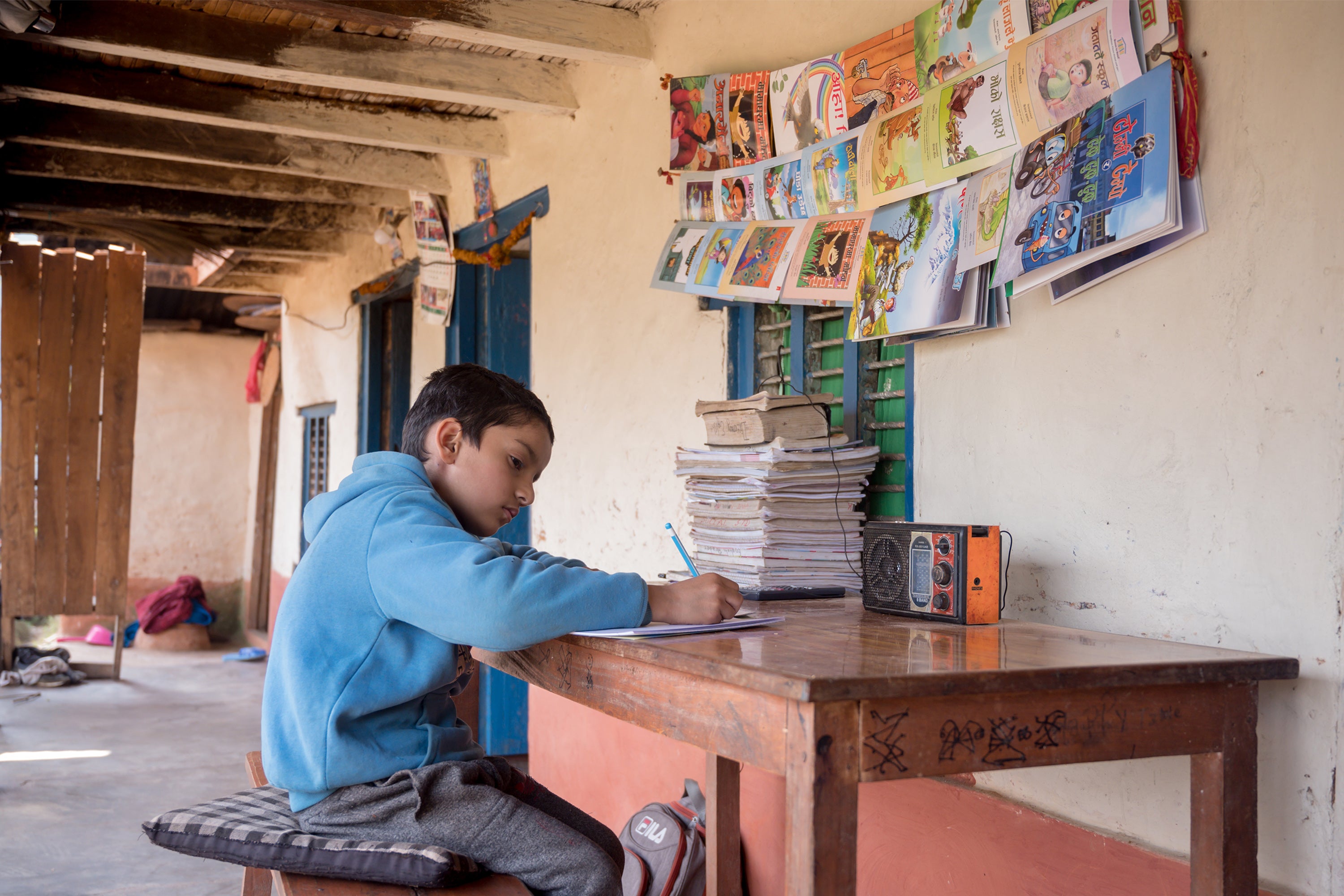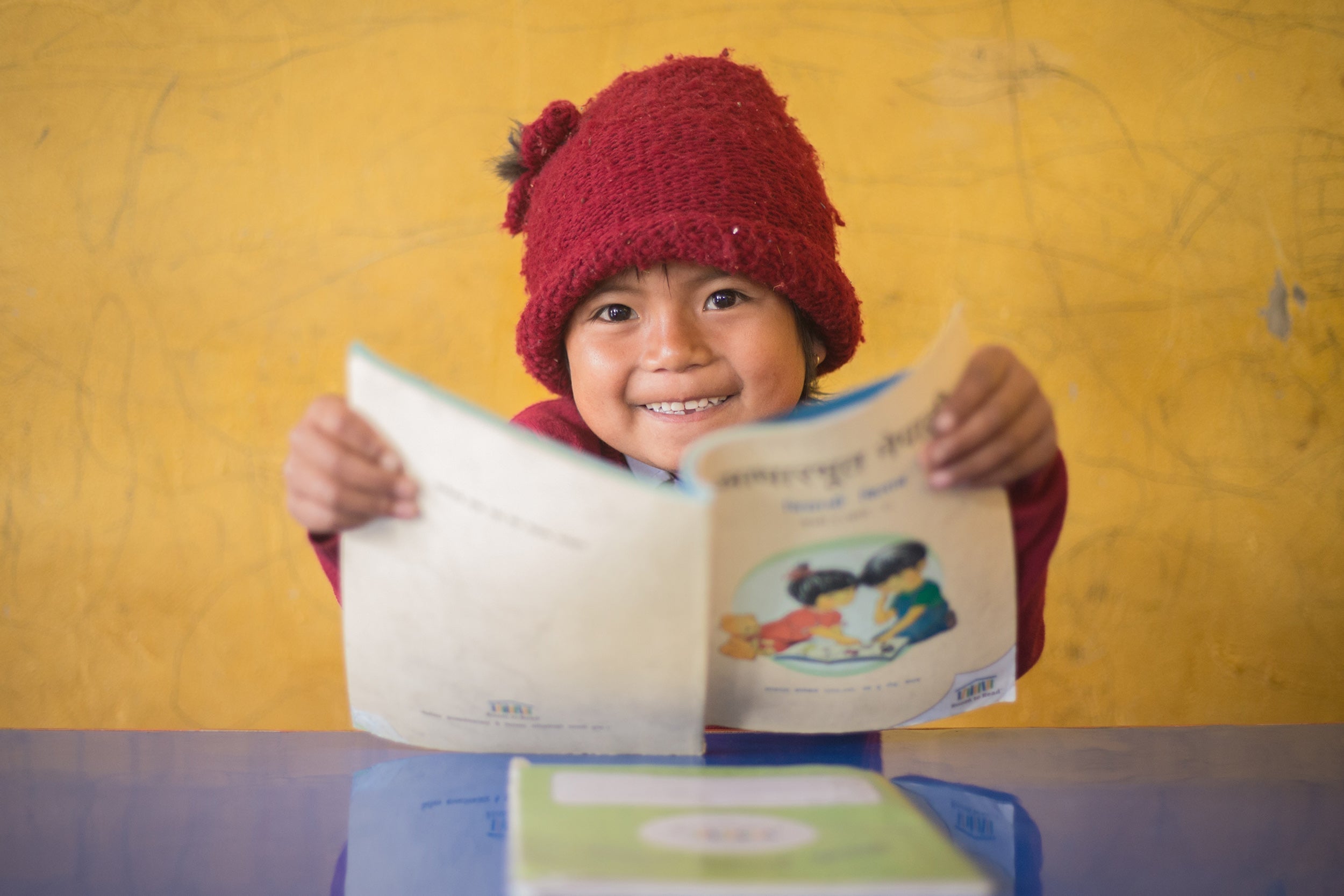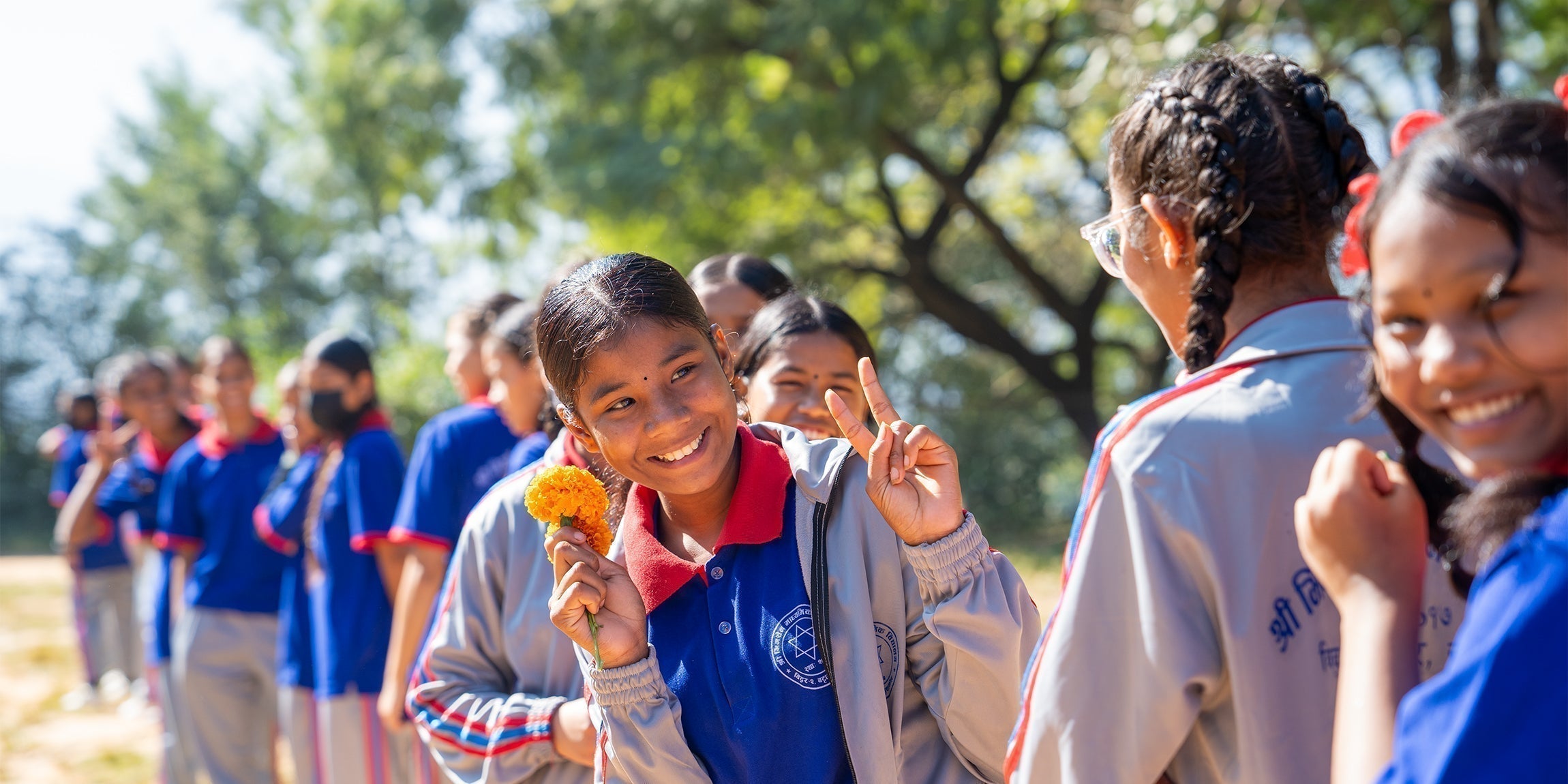
Pratik: A story of hope and determination
During the COVID-19 pandemic, school closures disrupted an estimated 1.6 billion children's education, with most of the children affected coming from under-resourced communities with little to no access to remote learning methods.
Our partner organisation Room to Read is dedicated to improving access to good education across the world, and in the face of these dire predictions, Room to Read’s work had never felt more critical.
In this space of poor predicted outcomes, we introduce you to a story of hope and determination. When schools across Nepal were forced to close, many families with support from the charity Room to Read began creating home libraries to ensure their children could continue learning. Home libraries served as reading and study nooks for learning. To this day, they continue to be invaluable spaces for young learners.
Meet Pratik and his family at home in Nepal. During the pandemic, their home library consisted of colourful children’s books, hung in rows above a large work desk. Pratik’s workbooks and notes could be found stacked neatly beside a radio which played Room to Read’s literacy programming.
Pratik was 9 years old when Room to Read contacted him and his family to speak about his learning journey. His family setup a space devoted to learning and imagination so he could continue his education outside of school. Many children in Pratik’s community found continuing education during the lockdowns incredibly difficult. This is because a large proportion were first-generation learners, and whilst their families supported through encouraging their children’s learning, helping with the intricacies of schoolwork was more difficult. There was no internet access at Pratik’s house, so he was unable to attend online classes, which meant he was alone to navigate the complexities of education.
"Pratik enjoys reading, especially reading stories to us, but we were unable to assist him during the long school closure when he encountered difficulties with his reading sessions. We also had limited ideas on how to use his books or what tactics to use at home to keep him studying," Pratik's mother said.
Much like the rest of the world, in Nepal the pandemic caused major disruptions to learning. These disruptions were exacerbated by the lack of reliable access to the internet in rural Nepal. Pratik’s parents – much like many parents and caregivers in Nepal - were concerned about their child’s learning loss. In response to the rising learning crisis, Room to Read adapted their programming to the dissemination of hard copy learning materials and radio programmes. This was designed to benefit children in communities who did not have reliable access to technology or the internet.
In December 2021, while schools remained closed, Room to Read staff distributed home learning packs to more than 6,000 children. These packs contained worksheets with guided teaching, stationary, storybooks and colouring books. The resources were devised to aid learning at home for children and carers. Parents and carers were also offered phone sessions by Room to Read staff, explaining how to use the resources and create effective learning environments for the children they were caring for.
“I'd always wanted a storybook corner in my house, and the learning from home kit came with enough books to start a little library for myself. Before settling on the porch area, my sister and I looked around the house for a well-lit spot. It has a wide white wall where I can hang my books, and because my family gathers here frequently to talk, I can also read a few of the stories to them.”— Pratik, 9-year-old Literacy Program student from Nepal.
From Pratik’s school, the majority of families set up home study areas for their children. Young learners could enjoy the myriad of benefits these learning spaces provide. From stimulating curiosity and creativity, to increasing motivation, providing children with learning spaces in their homes helps build essential literacy skills. This program is designed to break the cycle of poverty and illiteracy. Developing literacy skills are crucial for children’s cognitive, social and academic growth, setting young people up for a life of more opportunity.
Thanks to our partner organisation Room to Read for sharing Pratik and his families’ inspirational story with us. Want to know more about their literacy programs? Follow this link.










